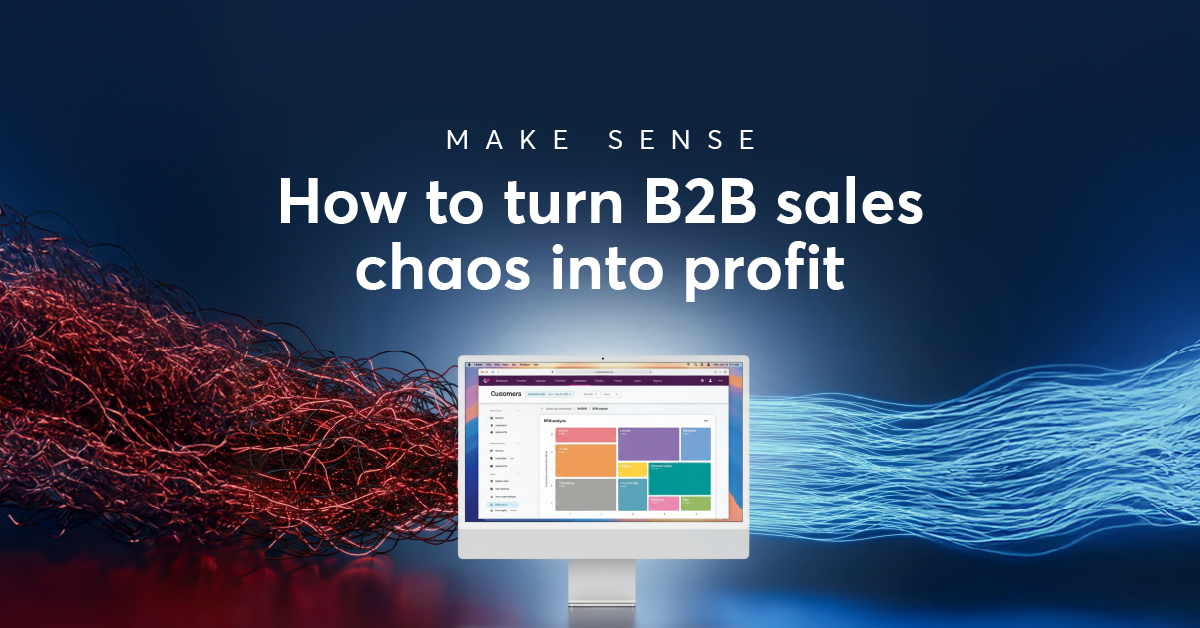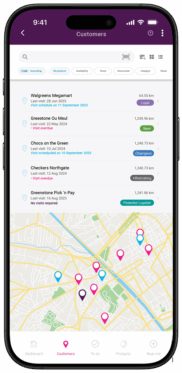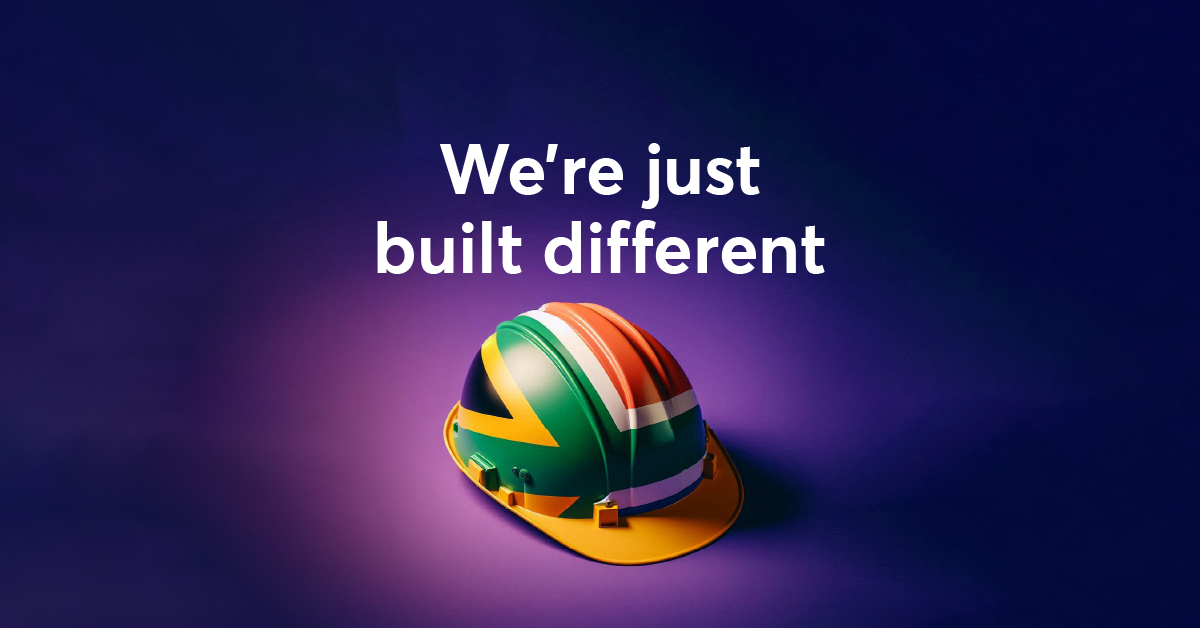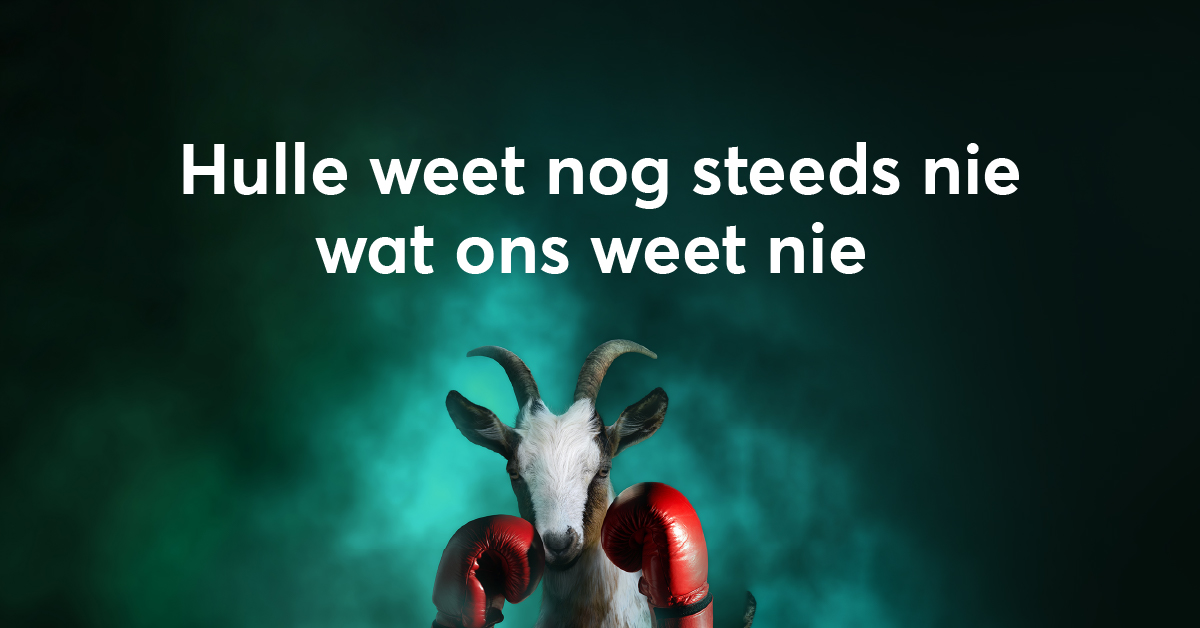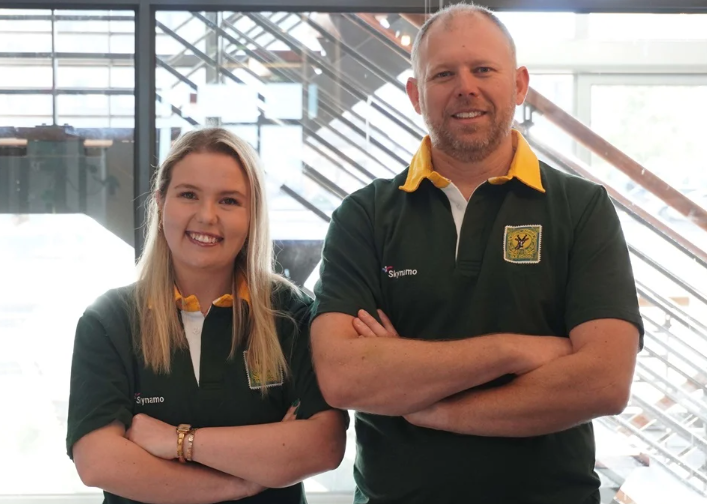
Your veteran sales rep leaves. What now?
In most B2B businesses, sales reps are a vital part of your deal pipeline. They’re out there, every day, driving kilometres, shaking hands, building relationships, and keeping the wheels of business turning.
But what happens when your most experienced sales rep leaves? The one who knows every customer by name, every order by memory, and every shortcut in your processes? The one with the little black book with all of that data in it?
For many businesses, that’s when the panic starts. Because, when your sales data lives inside someone’s notebook, inbox, or head, their resignation letter can double as a data-loss – and profit-loss – notice. This is the moment where the difference between old-school sales processes and modernised sales tech becomes crystal clear.
Skip ahead: I want to keep all our customer and sales data in one place
What does a sales rep do in B2B, really?
In the B2B context of manufacturers, distributors, importers, and wholesalers, a sales rep is the bridge between your company and your customers. They represent your brand on the road and in the field. They build trust, resolve issues, gather insights, and keep stock moving. While their main KPI is to take orders, they can only do so by effectively nurturing relationships.
This is because B2B selling is personal. It’s less about flashy ads and more about trust built over time. A skilled sales rep becomes part consultant, part problem-solver, and part relationship manager.
Aside from “sell products” this is what a good sales rep actually does
- Customer relationship management: Building and maintaining strong client relationships.
- Order management: Ensuring that customer needs are met promptly and accurately.
- Market insight gathering: Bringing valuable feedback from the field back to management.
- Route planning and time management: Balancing multiple customers, regions, and schedules.
- After-sales support: Following up, handling complaints, and maintaining customer satisfaction.
- Reports, reports, reports: Data is everything in this game. Especially for sales managers.
Unfortunately, for people-people, this admin-heavy responsibility can be an area of weakness.
When your field sales rep is good, customers stick with them. They trust that rep more than your brand’s adverts, website, or call centre. That’s why, when a veteran rep resigns, retires, or relocates, it can feel like losing a limb.
A great B2B sales rep knows
- Who to call when stock is low
- Who prefers face-to-face versus email
- When to follow up and when to hold back
- Which customers need a gentle reminder, and which need a firm nudge
They are the face of your company in every warehouse, retail aisle, and office block they visit. And when they’ve been with you for years, they carry an encyclopaedic knowledge of your customers, from pricing nuances to personality quirks.
Now imagine what happens when that knowledge leaves your business overnight.
The danger of sales data that lives in silos
Here’s the reality in many traditional B2B sales organisations. Sales data doesn’t live in one central, reliable system. It lives in the sales rep’s car boot, their notebook, their laptop, their phone, or worse: in their head.
A few tell-tale signs that your sales data is at risk.
- Your rep knows more about customers than your field sales CRM (if you have one).
- Quotes and orders arrive as screenshots, phone calls, or scribbles.
- The handover process after someone leaves looks like a scavenger hunt.
- No one can easily tell which customers are high-value, at-risk, or overdue.
- When a rep goes on leave, everything slows down.
This “manual memory bank” approach feels harmless when things are going well. But it’s a ticking time bomb.
So, what happens when your veteran sales rep leaves?
Let’s picture this scenario: Your top-performing sales rep, the one who’s been with you for 10 years, suddenly announces they’re leaving.
They’ve been handling your biggest accounts.
They know every customer’s preferred payment terms, favourite products, and delivery quirks.
And then, suddenly, they’re gone.
What is the ripple effect?
1. Customer relationships stall
Your rep has taken all their (your) customer data with them. Contact details are missing. You don’t even know who’s ordered what, for when, and with whom. Clients who’ve built a trusted relationship with that rep often feel blindsided. They might not even know who to contact next. Without continuity, some may take their business elsewhere.
2. Sales pipeline dries up
This is where the paw paw hits the fan, and your bottom line starts to feel it. Orders fall through the cracks. Opportunities are missed. Reminders aren’t sent. Quotes aren’t followed up. Leads go cold, because only the departing rep knew where each deal stood.
3. Forecasting becomes guesswork
With manual systems, this might not hinge directly on the sales rep, and might be a company-wide issue. However, without complete sales data, management can’t see what’s in the pipeline. Predicting monthly revenue becomes a guessing game.
4. New hires start from zero
Your new sales rep has to rebuild relationships from scratch. They don’t know customer histories, preferences, or pain points. It takes months to catch up, if they ever do.
5. Data security risks multiply
If sales records live in personal devices or spreadsheets, your business data leaves when your rep does. That’s a compliance and confidentiality nightmare waiting to happen.
In short: you lose visibility, profitability, and control, all because your sales system depends on a person, not a modernised process.
Explore: How to modernise and digitise sales
What modernised companies do differently
Forward-thinking B2B businesses have realised that sales continuity is essential for business contingency planning. They don’t rely on what one person knows. They rely on data-driven visibility that keeps customer relationships alive, even when teams change.
Here’s what they do differently.
 1. They centralise sales data
1. They centralise sales data
All customer interactions, visits, orders, and notes are recorded in one system.
That means when someone leaves, their knowledge doesn’t.
2. They use field sales technology
Sales rep apps like Skynamo give reps the ability to capture everything digitally, from visit notes to orders, in real-time, even offline.
3. They give managers full visibility
Sales managers can see where reps are, what they’re doing, and what customers need. That means less micro-managing, more coaching, and better forecasting.
4. They plan for continuity
If a rep leaves, another can pick up their territory instantly, with a full record of customer data, order history, and upcoming visits already in place.
5. They turn insights into action
Real-time dashboards show trends: who’s buying what, who’s overdue, and which regions are thriving. That allows smarter planning and faster response to market changes.
For you and your business, this is less about using B2B sales software to replace sales reps, but about empowering them and protecting your business from disruption.
How Skynamo streamlines contingency planning
Skynamo was built for exactly this problem.
When you manage a team of field reps across territories, customers, and product lines, consistency is everything.
Skynamo acts as your single source of truth for customer and sales data.
This ensures vital sales and customer knowledge doesn’t walk out the door.
Here’s how Skynamo helps when your veteran sales rep leaves (or before they do)
1. All customer data in one place
Every customer, every order, every visit – recorded automatically. No more guessing who ordered what last time.
When a rep leaves, their replacement logs in and sees the full picture: order history, visit frequency, contact details, and past notes.
2. Real-time visibility for managers
Managers can view rep routes, activity logs, and customer engagement in real time. That means you can reassign territories, follow up on deals, and maintain service levels without disruption.
3. Seamless onboarding for new reps
New reps don’t need weeks of “catching up.” They can see exactly where to start, who to visit, what to sell, and what customers expect. This protects your years of building strong customer relationships with your existing customer base.
4. Data integrity and security (ISO compliance)
No more customer data stored on personal phones or in private notebooks. Skynamo is ISO27001 certified, so your data is centralised, secure, and compliant, even if someone leaves.
5. Automated reporting and insights
Forget end-of-month chaos. Reports are generated automatically, so you can see territory performance, stock movement, and order trends without asking reps to compile spreadsheets.
6. Integration with your accounting or ERP system
Orders captured in Skynamo flow straight into your ERP or accounting system. This reduces admin, stops double-entry errors, keeps stock levels and prices up to date, and keeps everything in sync.
So when a veteran rep leaves, your workflow doesn’t break. Your data stays intact, your customers stay served, and your team keeps selling.
Turn a risk into an opportunity
Here’s the silver lining: Losing a veteran sales rep doesn’t have to be a catastrophe. It can be a wake-up call. An opportunity to modernise how you manage relationships, protect data, and support your sales team.
Because here’s the truth:
The most resilient companies aren’t those who don’t lose key sales people. They’re the ones that use tools to keep running smoothly when they do.
Don’t be left behind. How to future-proof your sales team and business
A few simple but powerful steps can turn your business from reactive to resilient.
1. Digitise every sales interaction
No more notebooks or spreadsheets for order tracking. Capture everything digitally so your business owns the data.
2. Standardise sales processes
Define how reps record visits, create quotes, and log feedback, so your customers get a consistent experience, no matter who serves them.
3. Integrate systems
Connect your sales platform (like Skynamo) with your ERP, accounting, or CRM system. Data should flow automatically, reducing manual errors.
4. Encourage data ownership
Train your team to see data capture as part of their professional toolkit, not as admin. When reps understand the ‘why’, they’re more consistent in the ‘how’.
5. Track sales reps and coach with ease
Track sales rep activity with automated call reports, so you can mentor, coach, and reward as needed.
Use dashboards to identify gaps, trends, and training opportunities. Great tech doesn’t replace great leadership, it amplifies it.
Act now. So that when your best sales rep leaves, your sales keep going
Sales reps are the lifeblood of any B2B business. Their relationships drive revenue, retention, and reputation. But relying solely on individual knowledge is risky.
When that knowledge is captured, shared, and secured through Skynamo, your sales operation becomes resilient by design.
So when your veteran sales rep leaves, you won’t be left scrambling.
You’ll be ready.
With Skynamo, the show goes on.
Don’t let vital customer knowledge walk out the door. Get in touch with Skynamo to see how your sales data, relationships, and team performance can stay strong, no matter who comes or goes.
FAQs
Is Skynamo easy to use? My reps are not tech experts.
Absolutely. Skynamo was designed specifically for field sales reps, people who spend their days on the road, not behind a desk. It’s intuitive, mobile-friendly, and works even when offline, so your team can focus on selling, not figuring out software. Speak to us to see just how quickly your reps can get comfortable with Skynamo.
We’ve tried sales software before, but it didn’t stick. How is Skynamo different?
We know new systems are often difficult to adopt. Therefore, we approach this differently. We prioritise simplicity, transparency, and hand-held onboarding, with hands-on support from real humans who guide your rollout and training. Talk to Skynamo to experience why our customers stick around (and actually enjoy using it).
Why do sales reps quit?
Sales reps often leave because they feel unsupported, bogged down by admin, or lack visibility into how their work drives results. With Skynamo, you can remove those frustrations by giving reps the mobile sales tool that simplify their day and help them focus on selling. Talk to Skynamo to see how easy to use sales tech keeps your top performers engaged and loyal.
What is the #1 reason for failure in sales?
The biggest reason sales fail is lack of visibility, when reps and managers don’t have the right information at the right time. Skynamo eliminates blind spots by capturing all customer and sales data in one mobile app, helping you act fast and stay aligned. Book a demo to discover how visibility turns missed opportunities into closed deals.

 1. They centralise sales data
1. They centralise sales data

